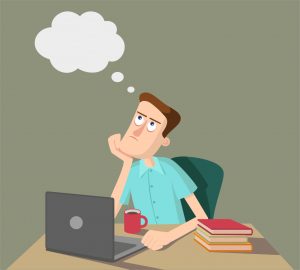 One of the key foundational idea that must necessarily underpin the concept of truth for it to have meaning, is to accept that you are a being of volitional consciousness. This means that you have the capacity to make choices, evaluate options and decide what course of action to take in any given circumstances.
One of the key foundational idea that must necessarily underpin the concept of truth for it to have meaning, is to accept that you are a being of volitional consciousness. This means that you have the capacity to make choices, evaluate options and decide what course of action to take in any given circumstances.
One of the distinguishing features of our human kind of consciousness is that it doesn’t function automatically. At the start of your life, you had no automatic knowledge, but you were born with the potential means to acquire it. And since you must acquire knowledge in order to live, your basic choice is to think or not. You are the spark plug and the ignition system for your life, and your quest for truth. In every situation every day of your life this choice must be made. The decision to think yesterday will not ensure you think today. The decision to think about one issue will not compel you to think about the next.
Reality does not push us into thinking, or into action — each individual must make that choice. We have control over our consciousness whether we chose to accept it or not, and we must initiate our own mental activity. In the realm of human consciousness, the decision to think is a first cause requiring no antecedent.
 When you think and reason to arrive at new conclusions and gain new insights you should then integrate these ideas and connect those observations about reality with previous knowledge in other areas. This mental activity results in new synapse connections being made in your brain. As you pursue the choice to learn you literally build the neural network of nerve cell connections in your brain. The result of your choices to think, to find out and to learn, is to build a different brain than the one you would have had if you had chosen not to bother. In this respect your thoughts are directly responsible for the assembly of new synapses. Consider this a small consolation prize for any one still clinging to the primacy of consciousness.
When you think and reason to arrive at new conclusions and gain new insights you should then integrate these ideas and connect those observations about reality with previous knowledge in other areas. This mental activity results in new synapse connections being made in your brain. As you pursue the choice to learn you literally build the neural network of nerve cell connections in your brain. The result of your choices to think, to find out and to learn, is to build a different brain than the one you would have had if you had chosen not to bother. In this respect your thoughts are directly responsible for the assembly of new synapses. Consider this a small consolation prize for any one still clinging to the primacy of consciousness.
It is by using your power of choice and your faculty of reason you are free to test any claims you hear, and thus discern truth and acquire knowledge. The proper mode of operation of human consciousness requires that it be managed and consciously directed for it to work effectively and efficiently. You have to get into the driver’s seat, and be the driver of your mind. It is your choice, and it’s a choice only you can make. The point to note is that without your power of choice the pursuit of truth and knowledge would not be possible — truth would be a meaningless concept.
Most people implicitly hold that they have free will in so far as they demonstrate that they are in control of, and able to choose, their own thoughts and actions. However, this conviction is far from universal, and often not consistent within the same individual who may entertain some idea of fate, or destiny, somehow shaping the bigger picture of their life. But just as there is nothing pre-destined about when you go to the bathroom, there is nothing pre-destined about the outcome of your life. Whether you become a floor sweeper or a deep seas diver, a self-made millionaire or a travelling minstrel, it will all turn out in accordance with every single choice you make. Your destiny is not written anywhere, and nothing about how your life will turn out is predetermined — except your ultimate death. Obviously there are potentially limits imposed by circumstance. If you are not born with a fully functional body your capacity for physical achievement will be necessarily limited. If you are born into servitude this will limit your options. Context may impose limitations, but this does not equate to destiny.
To accept free will is to pick up the gauntlet of life and choose to live it purposefully. To accept responsibility for oneself and one’s actions is a crucial step towards functional adulthood, and it requires the premise of free will. These days, the degree of your knowledge or ignorance is ultimately up to you. If you were born in the context of the dark ages you would probably never have learned to read, and there would not have been any books available to you if you had. But, in the information age, ignorance is a choice. Knowledge doesn’t come automatically; it is an achievement that must be earned, by choice.
 The opposite conviction to free will is called determinism. This idea comes in many forms but essentially holds that you have no power of choice. The implication is that you can’t really help anything. You do what you are predetermined (or destined) to do. This belief is convenient for those seeking to avoid responsibility. In fact, it is one great big avoidance of responsibility for anything and everything!
The opposite conviction to free will is called determinism. This idea comes in many forms but essentially holds that you have no power of choice. The implication is that you can’t really help anything. You do what you are predetermined (or destined) to do. This belief is convenient for those seeking to avoid responsibility. In fact, it is one great big avoidance of responsibility for anything and everything!
If the conviction of determinism is held consistently and one believes that everything is fated, written in the stars or destined to happen, the result is to be rendered rudderless and powerless in an unknowable universe. You may not notice that you have an indescribable lethargy towards the activity of thinking and reasoning to discern truth, but that is very likely to happen, if your mental operating system tells you that you can only do that which you were always going to do anyway. To accept determinism is to program your mind with a premise that undermines your incentive to find out what is true. Determinism says why bother? It’s a disempowering dead end, even when espoused by apparently ‘successful’ advocates such as Sam Harris.
Although denied by determinists, your ability to choose is a good example of how the experience of your life can be shaped by your thoughts. Your mind has the ‘power’ to choose which convictions to hold as part of your personal philosophy, and your choice exerts considerable effect on the outcome of your life. Even if you didn’t previously have the knowledge to consciously make this choice, you do now. You can choose to deny your free will, or you can choose to accept responsibility for all of your thoughts, and actions — you can assume the responsibility of judgment.
Most importantly, if you reject the idea that you have free will you necessarily destroy the concept of truth in your own mind. Knowledge of reality is only possible if you have the ability to test your ideas in reality and choose between what works and what does not — which way to fry an egg correlates with reality, and which does not. Only if you can choose between truth or falsehood can knowledge exist. ‘No power of choice’ equates to ‘no means to gain knowledge’.
If you hold the determinist conviction that ‘you believe what you have to believe’ or ‘what you are predestined to believe’, in other words, if you believe that everything is predetermined, then you are not free to test your beliefs against reality and you are unable to validate or reject them. If the actions and content of your mind are predetermined and may or may not have anything to do with reality reason and logic, then you can never know if your conclusions are true or false. You can only know that you feel compelled to believe they are true.
Some determinists would argue that when we go through the motions of choosing, it may feel like we are in the driver’s seat, but it is only an illusion. This argument amounts to the same thing. No genuine capacity to choose equals no capacity to acquire knowledge.
Knowledge is the correctly understood identification of reality in conceptual form. Therefore, in order to know whether or not you have identified the facts of reality correctly, you must be able to test your conclusions. Whether you do this by a process of experimentation or a simple process of thought checking for and resolving contradictions, you can only do it if you are free to choose. If you are not free to choose, then you can test nothing, and you can claim to know nothing.
In a determinist universe people could only believe whatever they felt compelled to believe. They would not be able to claim that their beliefs constituted knowledge. There could be no such thing as knowledge, there could only be people claiming to believe what they have to believe.
 If you catch yourself thinking that ‘something was just meant to be’ recognise that this is a form of determinism. And ask yourself why you consider this thing predetermined, and not the effect of a given cause or sequence of causal events.
If you catch yourself thinking that ‘something was just meant to be’ recognise that this is a form of determinism. And ask yourself why you consider this thing predetermined, and not the effect of a given cause or sequence of causal events.
And know that if a part of your mind accepts determinism as true while another part does not, you are, dis-integrating your mind and programming it with contradictory premises. If you accept that you have freewill to set your own alarm clock, and to choose a partner, but not to set the course and direction of your life, recognise the inconsistency within your mind. It will undermine your thinking capability and your capacity for certainty. If you want your mind to be fully functional and your thinking to be efficient you must consciously program it with consistent premises that are true. That is, ones that correspond to the facts of objective reality. The fact is that you are a being of volitional consciousness, born with no knowledge of what is true or false, but with the means to acquire it through a process of thought that must be exercised by choice.
Leave a Reply